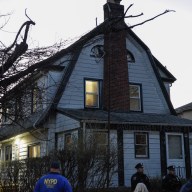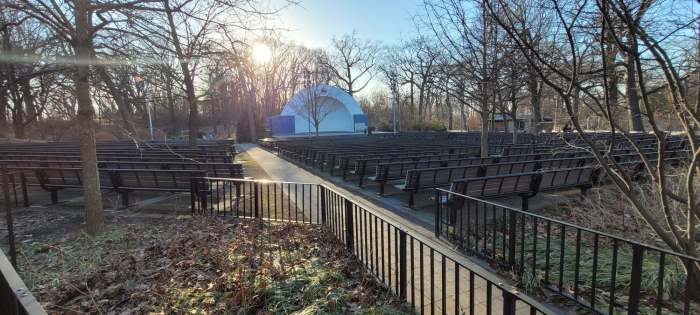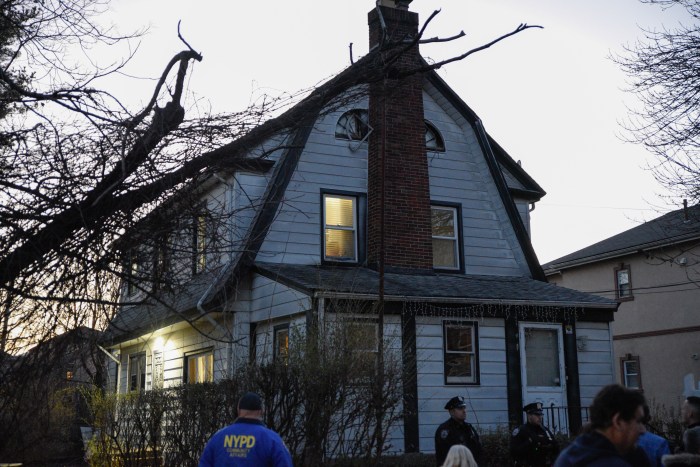By Philip Newman
The Metropolitan Transportation Authority's money problems have worsened because of a nearly $7 billion gap between what the MTA asked for and what the state Legislature provided.MTA Chairman Peter Kalikow, speaking after the agency approved a downward revised capital plan last Thursday, said the “core” projects remain, including renovations of 44 subway stations.Among nearly a dozen stations where rehabilitations have been deferred are the 71st Avenue/Continental Avenue stop in Forest Hills and the Union Turnpike station in Kew Gardens.The Transit Authority said besides the 44 stations where rehabilitation will go ahead, others while not slated for rehabilitation will be upgraded in accordance with the Americans with Disabilities Act and undergo other such improvements.”The most important thing about the capital program is the core projects,” Kalikow said. “The Legislature and the governor saw that we were correct and they essentially understood our meaning and gave us what we needed.”Kalikow was asked about the Second Avenue subway, the East Side Access to bring Long Island Rail Road trains into Grand Central Terminal and the rail link between Lower Manhattan and John F. Kennedy International Airport.”They are not canceled.” Kalikow said, but they might have to be delayed. “If the money is not there, it's just not there,” he said, adding it will be months before the MTA will have to decide whether to delay or scrub the projects.Kalikow said there was still hope for the big projects and he planned to go to Albany once again to ask for financial help for the mega-projects. He mentioned a referendum that is scheduled next November with voters deciding whether to approve nearly $1.5 billion for mass transit.Some transit activists protested that the MTA cut too deeply into funds for subway station maintenance and rehabilitation.”These cuts must not stand,” said Gene Russianoff, attorney for the Straphangers Campaign in remarks before the MTA meeting began last week. “The affected communities have waited literally decades for their local eyesores to be transformed into new stations. The impact will not be only on the riders but on jobs and economic vitality in these areas.”Russianoff urged MTA officials to put additional pressure on Mayor Michael Bloomberg to contribute $100 million more over the next five years for mass transit. He said the MTA should withdraw funding from the Lower Manhattan-JFK link for core projects such as station repairs.City Councilman John Liu (D-Flushing) suggested the MTA money problems were partly of its own making.”They abdicated their responsibility to secure much-needed transit funding by giving away their valuable Hudson Yards property at fire sale prices and by exuding a rosy picture of the subway system's state of repair – even as a spate of major disruptions continued,” he said.The federal government has already earmarked $4 billion for the Second Avenue subway and the East Side Access.New York's two U.S. senators announced Friday that more than $65 million in federal funds for the East Side Access project had arrived a day after the MTA said the ambitious project could be delayed. “The East Side Access funds represents an important commitment by Congress to help meet transportation needs that have existed for too long,” said U.S. Sen. Charles Schumer (D-N.Y.). “This is great news for our city's transportation infrastructure and even better news for commuters,” said U.S. Sen. Hillary Rodham Clinton (D-N.Y.).The East Side Access is expected to shorten travel time of Long Island and Queens commuters, free needed capacity in Penn Station, take thousands of cars off congested roads and help remove 800 tons of pollutants from the atmosphere.The less-than-asked-for aid from the state – $21.1 billion instead of the $27.8 billion – also means the MTA will delay purchase of a dozen new trains for the Long Island Rail Road and other equipment.On the other hand, the money available will buy nearly 1,000 new subway cars and more than 1,300 new buses.
































